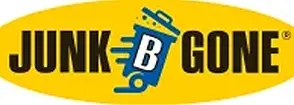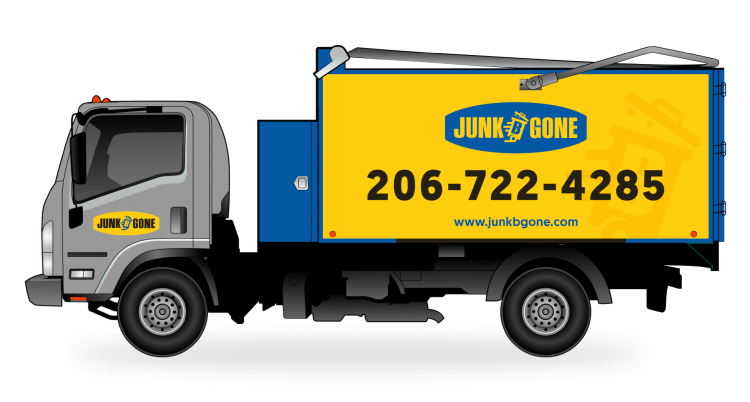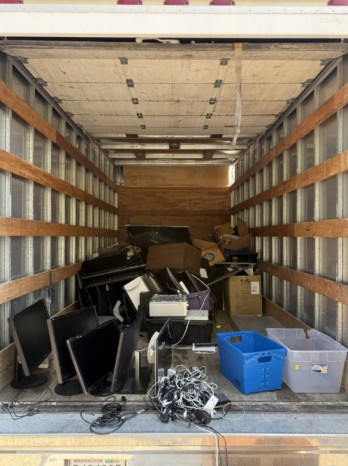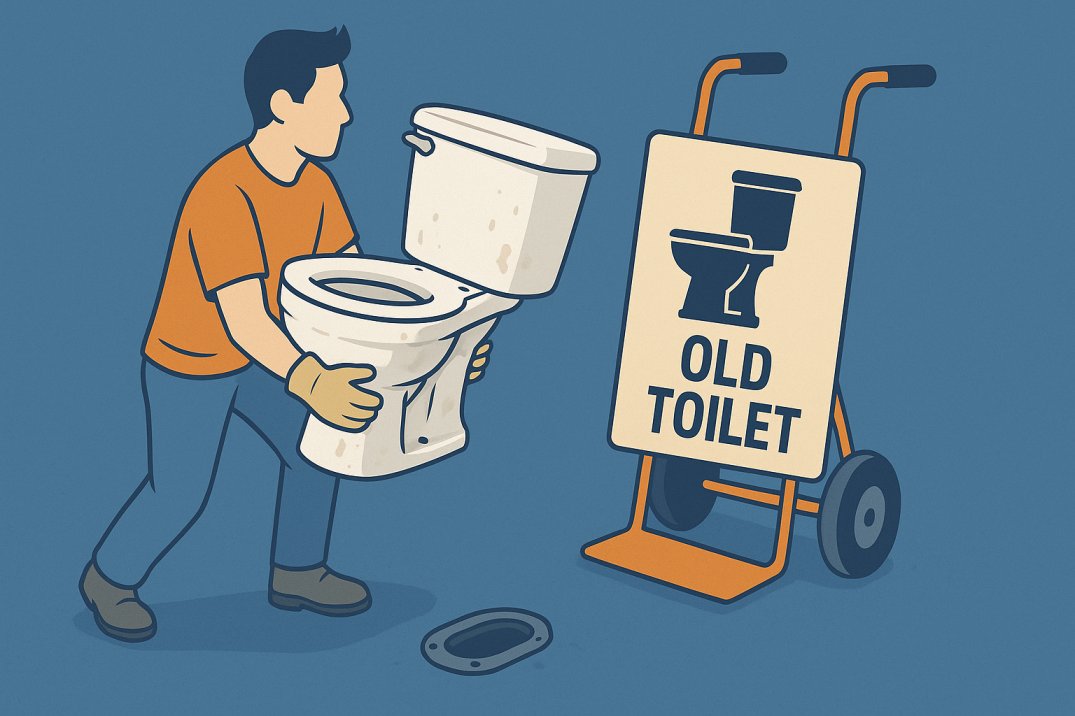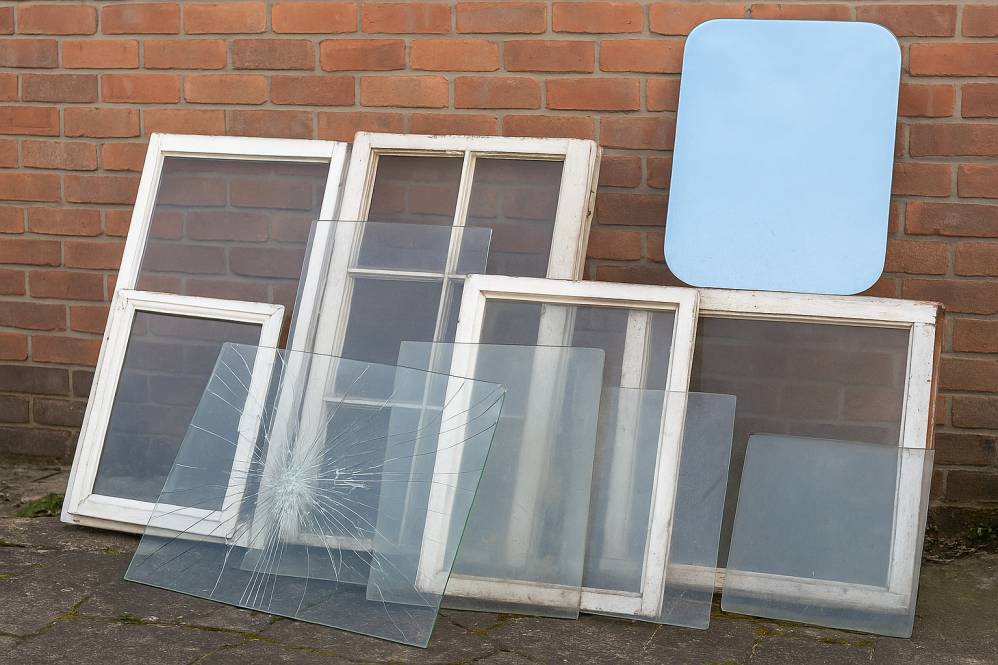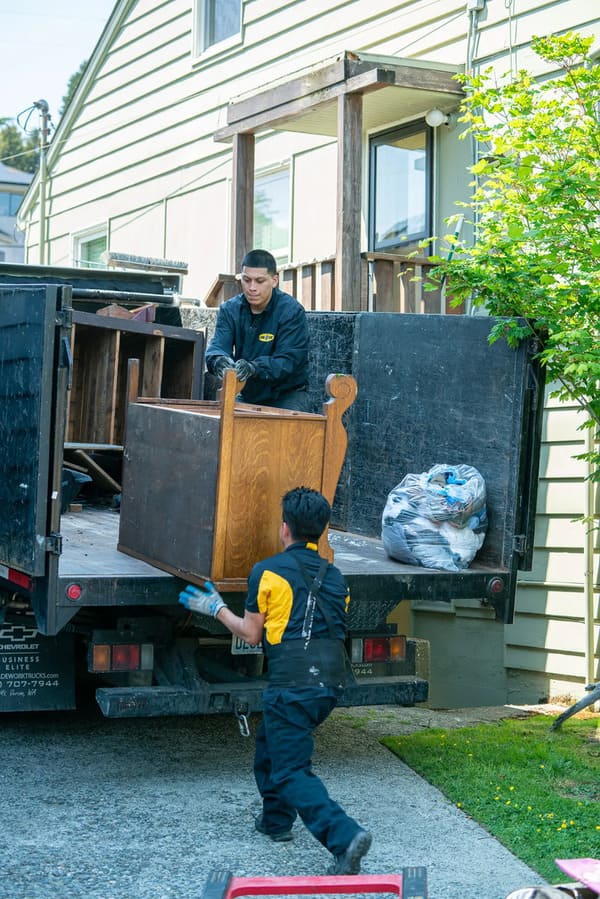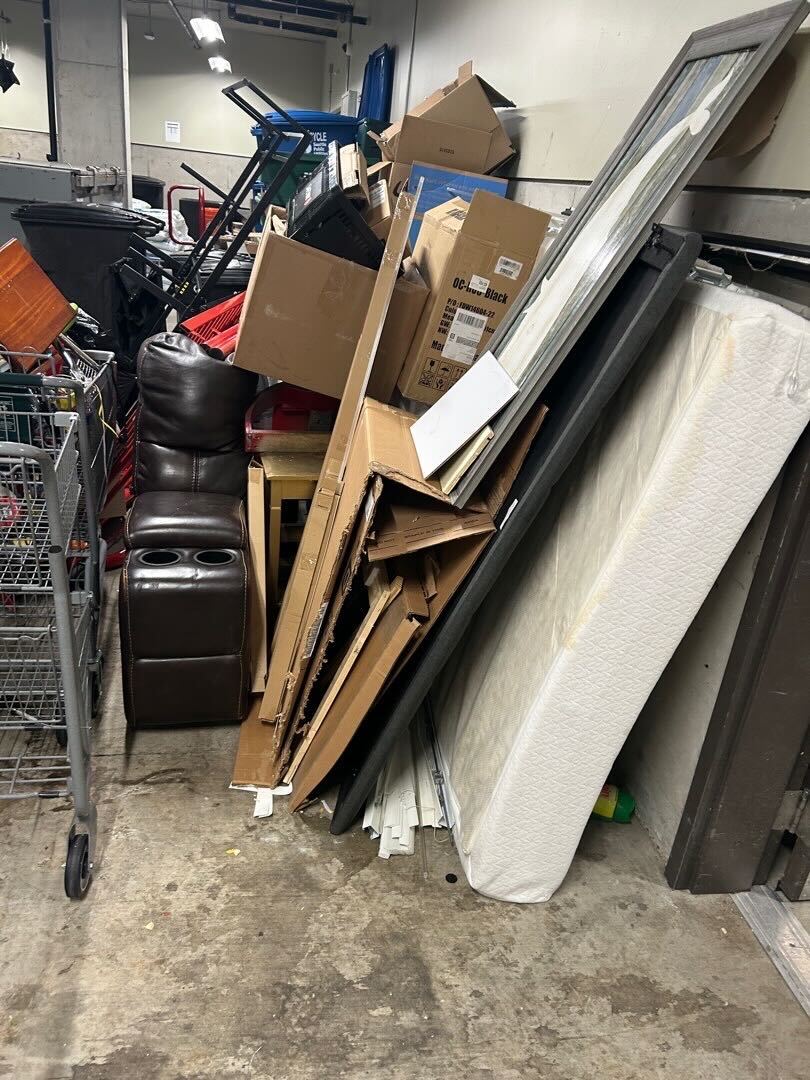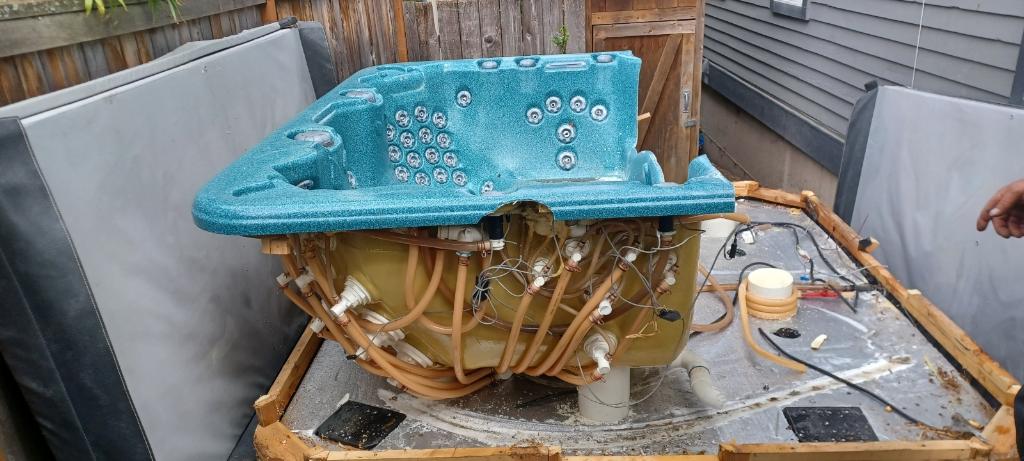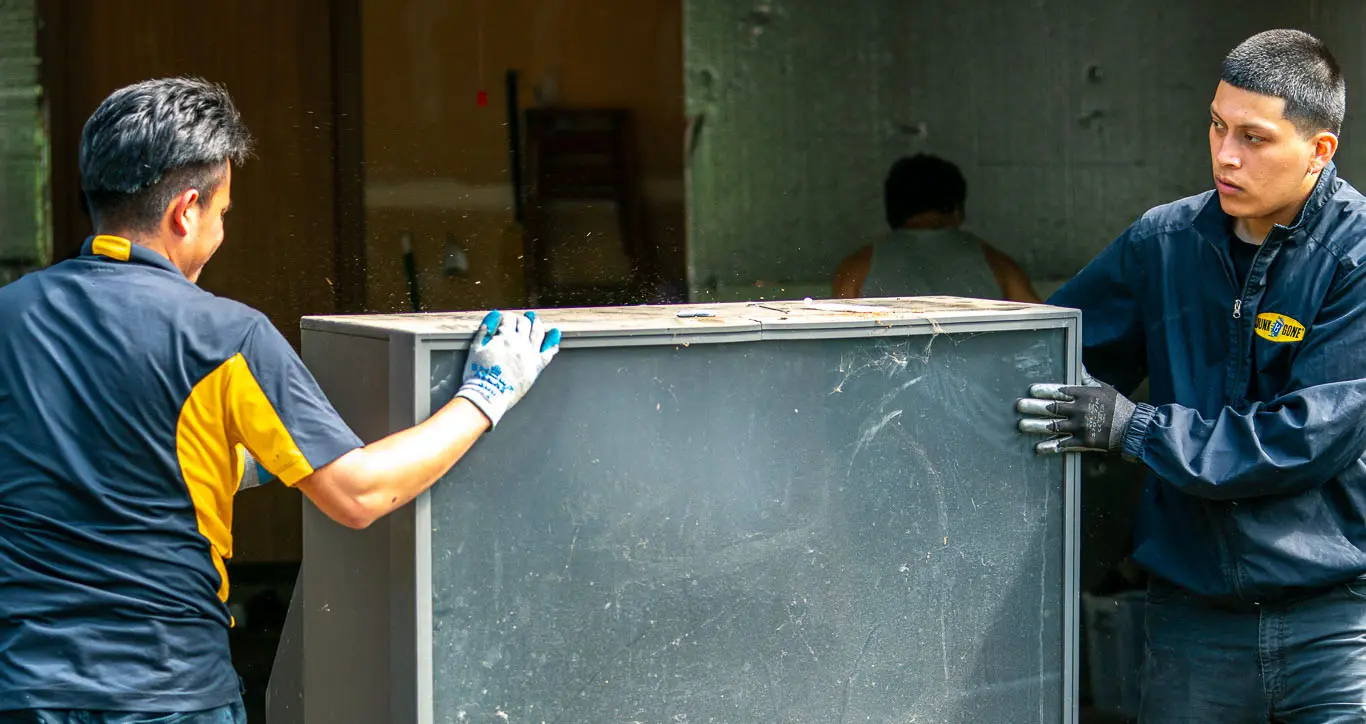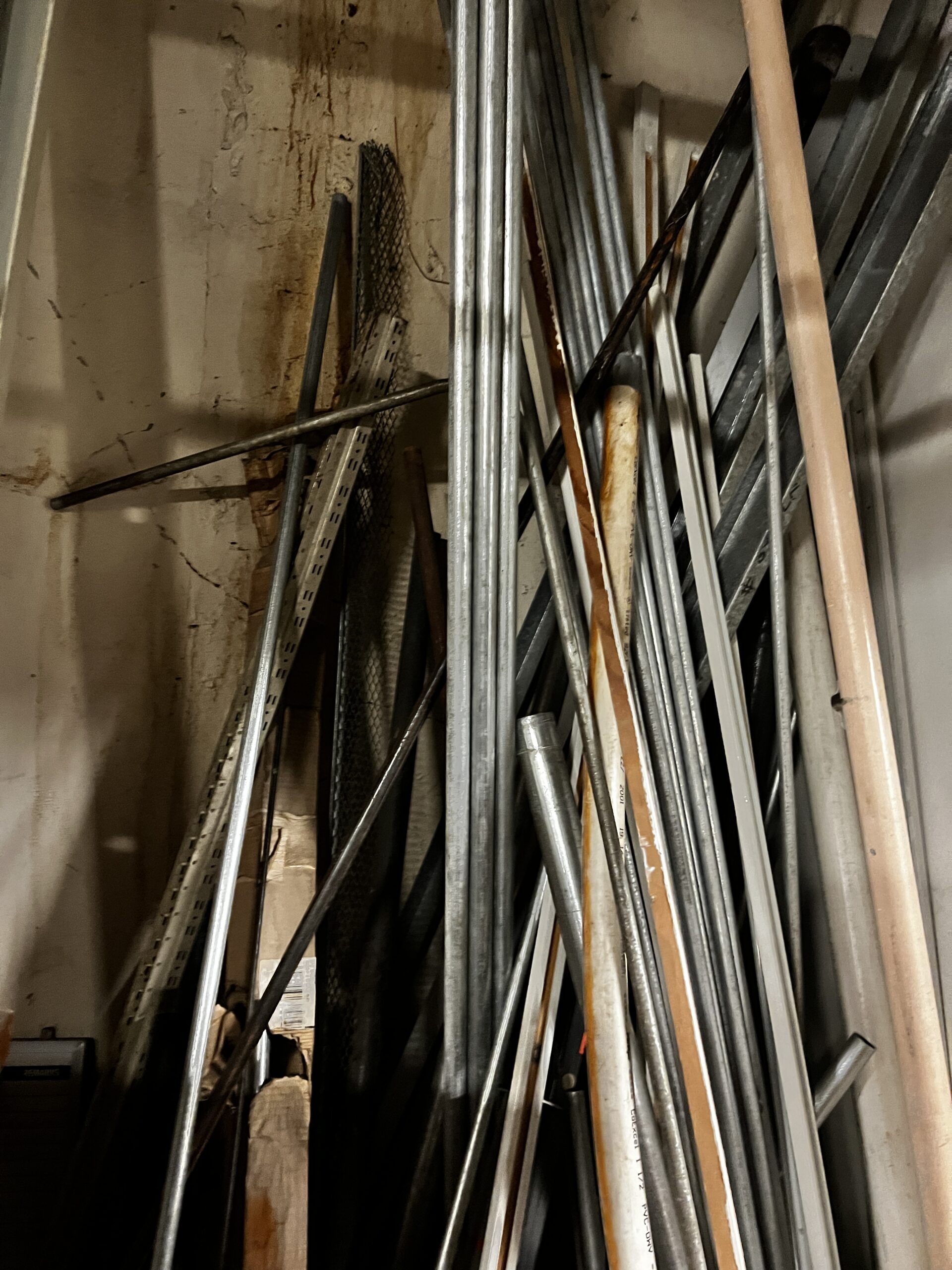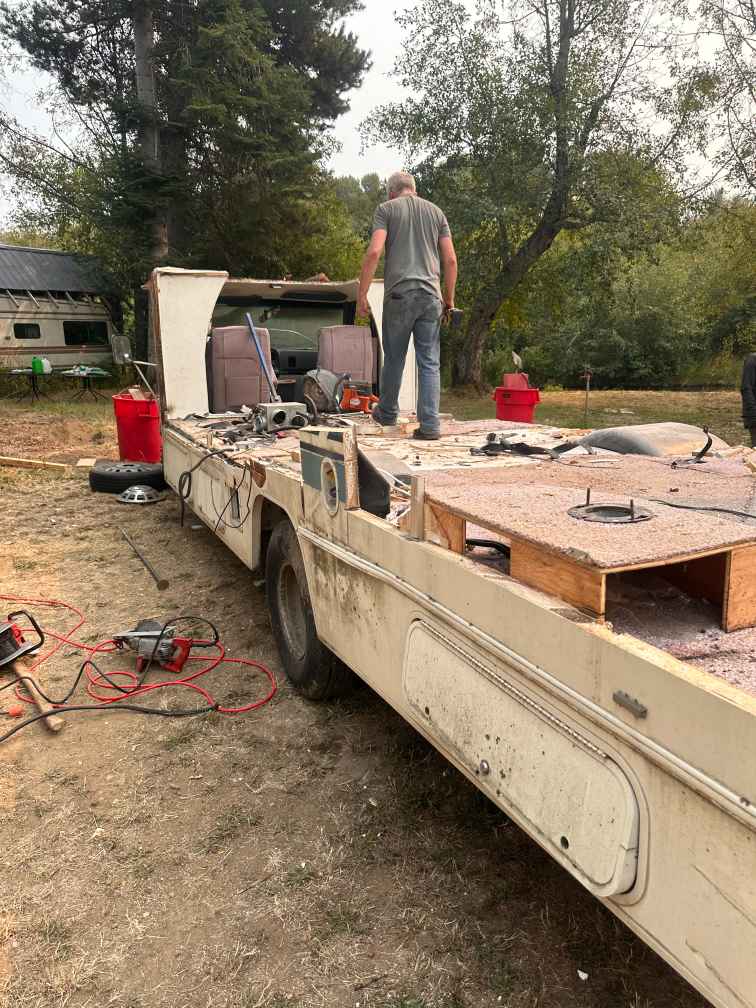Navigating an estate cleanout can feel like walking through a maze, especially when you’re juggling emotional stress and logistical complexities. Whether you’re dealing with the aftermath of a loved one’s passing or preparing a property for sale, you’re likely facing a whirlwind of decisions and tasks. This guide aims to be your compass, breaking down the cost & steps involved in estate cleanouts into digestible pieces. We’ll help you understand what to expect, how to prepare, and how to make the process as smooth as possible.
Why You Might Be Faced With an Estate Cleanout
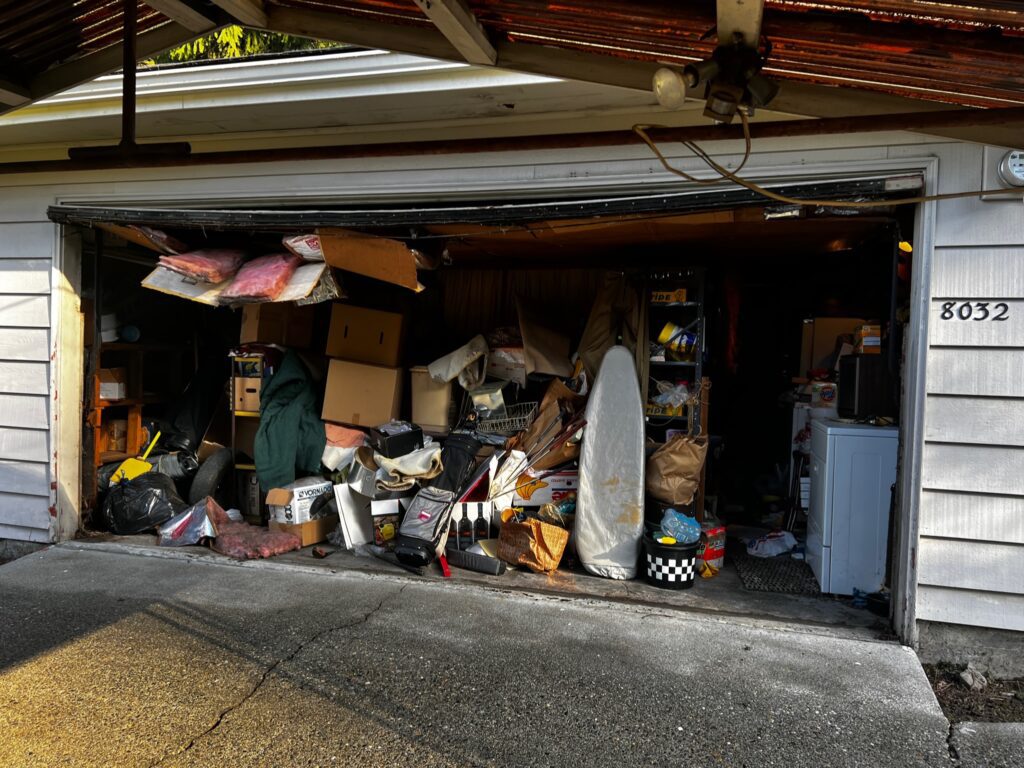
Life throws curveballs, and sometimes those curveballs come in the form of big tasks like estate cleanouts. There are several scenarios you may be faced with the huge and daunting task of cleaning out an entire estate of either yourself or a love one. Let’s break down some of the key reasons:
- Loss of a Loved One: When someone close to you passes away, their belongings need to be sorted and either kept, sold, or disposed of. It’s a big job, especially when you’re also dealing with grief.
- Downsizing: Maybe you’re moving to a smaller place and you’ve got a lifetime of stuff that won’t fit. An estate cleanout service can help you decide what to keep and what to get rid of.
- Selling a Property: If you’re putting a house on the market, it needs to be clean and presentable. An estate cleanout can quickly clear out old furniture, clutter, and other items you don’t need.
- Divorce or Separation: When a relationship ends, dividing up household items can be a complex process. A cleanout service can help streamline this.
- Hoarding Situations: In extreme cases where a home is filled with accumulated items, professional help is often the safest and most efficient way to handle the cleanout.
Best Practices for an Estate Cleanout
Dealing with an estate cleanout can be an overwhelming task, often accompanied by a mix of emotions and responsibilities. Whether you’re tidying up after a loved one’s passing or preparing a property for sale, the process involves much more than just sorting through belongings. It’s a journey through memories, a confrontation with loss, and a significant step towards closure and new beginnings. This guide aims to provide a compassionate, step-by-step approach to navigating the complexities of estate cleanouts, ensuring the process is respectful, efficient, and as stress-free as possible.
Understanding the best practices for an estate cleanout is crucial not only for honoring the legacy of the departed but also for managing the practical aspects efficiently. It requires careful planning, organization, and often, the courage to make difficult decisions. But with the right approach, this challenging task can lead to a sense of accomplishment and peace. In the following sections, we’ll explore essential tips and strategies to help you through this demanding time, covering everything from sorting belongings to dealing with legal matters. Let’s embark on this journey with respect, understanding, and a clear mind, ensuring that the process is handled with care and dignity.
1. Create an Effective Estate Cleanout Strategy:
A detailed plan is your roadmap through the maze of estate cleanout. It’s essential because it helps you stay organized, focused, and emotionally grounded. By setting clear goals and stages, you can tackle the task in manageable segments, preventing overwhelm and ensuring nothing important is overlooked. A good plan also allows for better coordination with family members and professionals, ensuring that everyone is on the same page.
- Start by listing all tasks: Break down the cleanout into smaller, achievable steps, such as sorting, appraising, selling, and disposing.
- Set clear deadlines: Assign realistic timelines to each phase to maintain momentum and track progress.
- Involve key stakeholders: Engage family members, executors, or attorneys early in the process to honor wishes and legal requirements.
- Prioritize important areas: Tackle high-priority areas first, such as securing valuable or sentimental items.
- Stay flexible: Be prepared to adjust your plan as needed, especially when dealing with unexpected discoveries or emotional challenges.
By embracing these strategies, you can navigate the estate cleanout with clarity and purpose, making the process as smooth and respectful as possible.
2. Sort Items into Categories (keep, sell, donate, discard):
When diving into the sea of belongings, categorizing items becomes crucial to maintain order and efficiency. Create distinct areas or use colored stickers for each category: Keep (for items of sentimental or significant value), Sell (for items that are valuable but not needed), Donate (for items that can still be used by others), and Discard (for items that are no longer usable). This visual separation helps in making clear, decisive actions about each item you encounter.
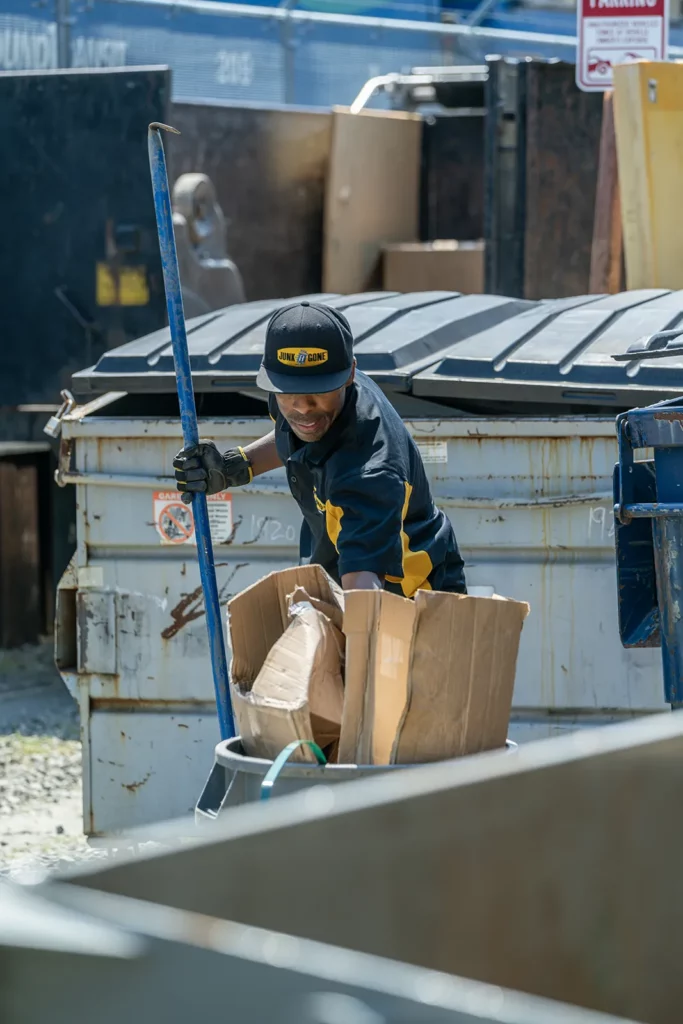
- Start with the easy items: Begin with things that have no emotional attachment or clear categorization, like outdated paperwork or generic household goods.
- Make ‘maybe’ a temporary category: If you’re unsure, place items in a ‘maybe’ pile, but set a deadline to decide.
- Involve family and friends: Sometimes, a second opinion can help you make decisions more objectively. Plus, they might find joy or use in items that don’t hold value to you.
- Photograph and document: For items you’re letting go of but hold sentimental value, take photos or write down memories associated with them.
- Review and adjust: After initial sorting, review your categories. Sometimes distance provides clarity, and you might feel differently about certain items after some time.
- Organizing: Once you’ve sorted the items, the next step is to organize them based on their categories.
By systematically categorizing and thoughtfully considering each item, the cleanout process becomes more manageable and less daunting. Plus, this method ensures that every piece is treated with respect and finds its proper place, whether with you, a new owner, or responsibly disposed of.
3. Secure Important Documents
In the whirlwind of an estate cleanout, it’s crucial to identify and secure vital documents early in the process. Look for wills, financial records, insurance policies, and personal identification documents. Keep these in a safe, accessible place—a locked filing cabinet or a fireproof safe is ideal. This ensures they are protected from loss, damage, or prying eyes during the cleanout.
Best practices for handling sensitive information:
- Maintain privacy: Handle all documents discreetly, especially those containing personal or financial information.
- Organize systematically: Create organized files for different types of documents, making them easier to manage and reference.
- Shred unnecessary documents: Properly dispose of outdated or irrelevant documents by shredding to prevent identity theft.
- Consult with professionals: When in doubt about the importance of a document, consult with an estate attorney or a financial advisor.
By taking these steps, you safeguard not just the physical documents but also the legacy and personal security of the departed. Handling these items with care and respect ensures that sensitive information remains confidential and that crucial documents are preserved for future legal and financial processes.
4. Appraise Estate Items
Assessing the value of estate items can be a complex task, especially when dealing with antiques, art, or collectibles. Start by researching online, comparing similar items sold recently. Use resources like auction sites, antique guides, or collectible databases. Document each item’s condition, origin, and any identifying marks—these details can significantly impact value. For everyday items, consider their current market value based on utility and condition rather than sentimental worth.
If you stumble upon items that could be high in value or if you’re unsure about a particular item’s worth, it’s time to call in the professionals. This is especially true for jewelry, artwork, antiques, and unique collectibles. A professional appraiser can provide accurate, unbiased valuations, which are crucial for equitable distribution, sales, or insurance purposes. Consider hiring an appraiser if: the estate contains a large number of valuable items, if specific items have a murky history or provenance, or if there are disputes among heirs regarding value.
By understanding the true value of estate items, you not only honor the financial legacy left behind but also ensure a fair and transparent process for all involved. Plus, accurate valuations can prevent potential conflicts and help in making informed decisions about selling, keeping, or donating items.
6. Give Back to the Community by Donating Items
Donating items to charity can be a great way to honour the memory of a loved one and give back to your community. There are charities that serve all different sectors of the community, and they in constant need of gently used items. Take the time to do some research of where your donated items will have the biggest impact. By thoughtfully selecting charities and donating items from an estate, you transform a challenging cleanout process into an opportunity for generosity and and healing. It’s a beautiful way to remember a loved one, by spreading kindness and support in their name.
The benefits of donating items from an estate:
- Honoring Memories: Donating allows your loved one’s belongings to support causes they cared about, continuing their legacy.
- Reducing Waste: Donations help keep usable items out of landfills, contributing to a more sustainable planet.
- Supporting Communities: Your donations can provide essential items to those in need, strengthening community support networks.
- Emotional Healing: The act of giving can be therapeutic, helping family members cope with grief and loss.
If items aren’t selling or there’s no bites on online marketplaces, donating them might be the next best alternative to clear out the space, with the added bonus of helping those in need. Did you know that some Junk Removal Companies also do donations pickups? This can be extremely helpful when you need to get rid of items fast, as well as for donating bigger items like beds and furniture. Junk Removal Companies like us also know where to take things so they go to the best possible use, saving you the time and research.
7. Hire a Professional Estate Cleanout Service
Navigating an estate cleanout can be more than just physically draining; it’s often a complex emotional journey. That’s why you should consider hiring a professional estate cleanout services. Experts like us do more than just clear out a space; we provide peace of mind and efficiency in a time of need, transforming a daunting task into a manageable process.
Benefits of hiring professional estate cleanout services:
- Time-Saving: Let’s face it, time is precious, especially during an emotionally charged period. Professionals expedite the cleanout process, freeing you to focus on family and other pressing matters.
- Efficiency and Organization: We aren’t just people with trucks; we’re specialists in sorting, hauling, and organizing. WE know how to approach an estate systematically, ensuring nothing valuable is overlooked and everything is handled with care.
- Sorting Disposal and Donation: Figuring out what to do with all the items can be overwhelming. Professionals like us sort your items for no extra cost, and know exactly where to take them for donation, recycling, or disposal, adhering to all local regulations and ethical guidelines.
- Emotional Detachment: Sometimes, a neutral third party can make all the difference. Professionals offer an objective approach to decluttering, helping to make tough decisions less painful.
- Cost-Effectiveness: While there’s an upfront cost, these services can actually save money in the long run. They prevent costly mistakes, like throwing away valuable items or spending money on unnecessary storage.
Professional junk removers like us do several of estate clean-outs a month. We know the ins and outs of this process, and its safe to say its not our first rodeo! We are able to help at any point in your estate cleanout, whether it be right from the beginning, or when only junk and donation items are left to clear out. We’re sensitive to the emotional and logistical challenges of this task, and are with you every step of the way! By choosing a professional estate cleanout service, you’re investing in a smoother transition.
TIP: Make sure when you’re choosing a junk removal service to help with your estate cleanout, make sure that they have a track record of honesty and trustworthiness. The last thin you want is for valuable items or important documents to go missing or be mishandled in this process. Make sure to read customer reviews before setting on a service!
How Much Does an Estate Cleanout Cost?
When faced with the task of an estate cleanout, one of the first questions many people ask is, “How much is this going to cost me?” It’s a valid concern, especially when you’re already dealing with the emotional and logistical challenges of the process. The cost of an estate cleanout can vary based on several factors, from the size of the property to the volume of items to be removed. In this section, we’ll break down the key cost components to give you a clearer picture of what to expect when hiring an estate cleanout company.
- Size of the Property: Naturally, a larger property with more rooms will generally cost more to clean out than a smaller one. The size dictates the amount of labor and time required.
- Volume of Items: If the estate is filled with a lifetime of possessions, the cost will be higher due to the increased labor and disposal fees.
- Specialty Items: Some items, like pianos, antiques, or hazardous materials, may require special handling or disposal methods, which can add to the cost.
- Location and Accessibility: If the property is located in a hard-to-reach area or has accessibility issues (like a lack of elevators in an apartment building), this can increase the cost.
- Disposal Fees: Depending on the volume and type of items to be discarded, there may be fees associated with dumping or recycling.
- Additional Services: Some estate cleanout companies offer additional services like deep cleaning, repairs, or professional organizing. These services come at an extra cost.
- Local Market Rates: Just as with any service, estate cleanout costs can vary based on local market rates. It’s always a good idea to get multiple quotes to ensure you’re getting a fair price.
In essence, while the cost of an estate cleanout can vary widely based on the factors mentioned above, being informed about these components can help you budget more effectively and make informed decisions when hiring a professional junk removal company.
By following the steps outlined, you can navigate this challenging process with grace, efficiency, and perhaps a renewed sense of connection to your loved one. Whether you’ve decided to keep, sell, donate, or discard, each choice contributes to the larger narrative of a life well-lived and cherished.
Remember that it’s okay to ask for help, whether from family, friends, or professionals. Estate cleanouts are not meant to be faced alone. They are a collective endeavor, a shared responsibility, and, when approached with care, a collective healing.
Lastly, hold onto the love, not just the belongings. The true essence of a person is not in their possessions but in the memories and impacts they leave behind. By choosing to approach this process with kindness, respect, and thoughtfulness, you honor not just their belongings but their legacy.
